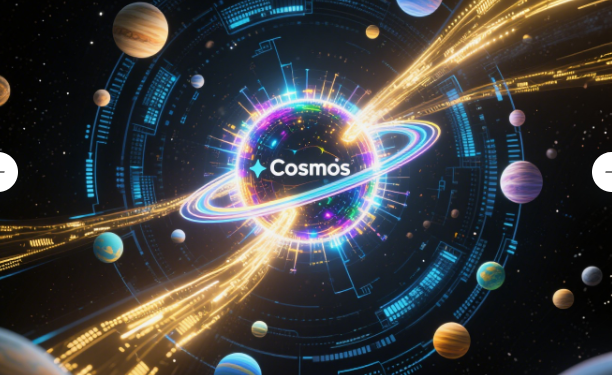Cosmos is a decentralized network designed to address the fragmentation within the blockchain ecosystem. Often referred to as the “Internet of Blockchains,” Cosmos enables independent blockchains, known as zones, to interoperate through the Inter-Blockchain Communication (IBC) protocol .
At the heart of this ecosystem lies the ATOM token, serving multiple roles:
- Staking: ATOM holders can stake their tokens to secure the network, participating in the consensus process and earning rewards.
- Governance: Stakers also engage in governance, voting on proposals that influence the development and direction of the Cosmos Hub.
- Transaction Fees: ATOM is utilized to pay for transaction fees within the Cosmos network .
Market Dynamics: Current Performance and Future Outlook
As of June 2025, ATOM is trading at approximately $4.58, with a market capitalization around $1.79 billion and a 24-hour trading volume exceeding $139 million . This positions Cosmos among the top 100 cryptocurrencies by market cap.

Historical Price Trends
- All-Time High: Reaching $44.80 in September 2021, Cosmos experienced significant growth during the 2021 crypto bull run.
- Recent Performance: The price has seen fluctuations, with a notable dip to $4.16 in June 2025, followed by a recovery to current levels .
Long-Term Projections
Analysts have varying forecasts for Cosmos’s future price:
- Cryptopolitan projects an average price of $5.64 for 2025, with potential highs reaching $5.98 .
- Coinpedia offers a more optimistic outlook, suggesting a potential high of $18.76 by the end of 2025, contingent on network developments and community engagement .
Addressing User Concerns: Interoperability and Security
Interoperability Challenges
A primary concern for blockchain developers and users is the lack of seamless communication between different blockchain networks. Cosmos’s IBC protocol addresses this by allowing secure and scalable data transfer across chains, fostering a more interconnected blockchain ecosystem .
Security Considerations
Ensuring the security of blockchain applications is paramount. A study on Cosmos’s consensus-critical code highlighted the importance of static application security testing (SAST) to detect non-deterministic behaviors that could lead to vulnerabilities. The research led to the development of improved SAST tools, enhancing the security posture of Cosmos-based blockchains .
Conclusion: Cosmos’s Role in the Blockchain Ecosystem
Cosmos stands out as a pioneering project in the realm of blockchain interoperability. By enabling seamless communication between independent blockchains, it addresses one of the most pressing challenges in the blockchain space. The ATOM token’s multifaceted utility, combined with ongoing network enhancements, positions Cosmos as a significant player in the evolving blockchain landscape.
For more insights into Cosmos and other blockchain projects, visit Bitora, your trusted source for comprehensive crypto exchange information.
Author Bio
Alex Carter is a blockchain analyst with over five years of experience in the cryptocurrency industry. Specializing in blockchain interoperability and decentralized finance, Alex provides in-depth analyses and forecasts to help investors navigate the complex crypto landscape.



























